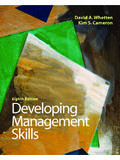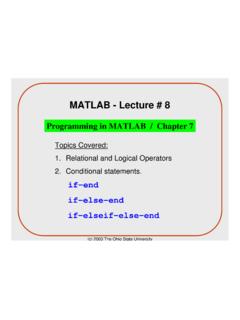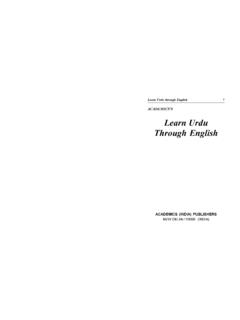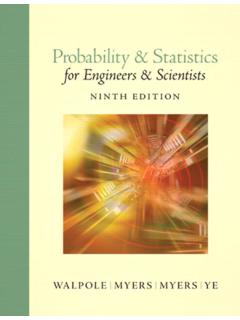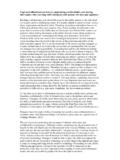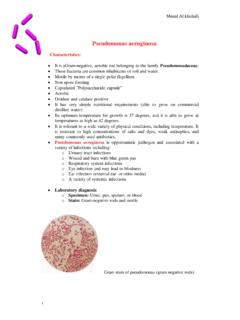Transcription of THEMATIC ANALYSIS: A CRITICAL REVIEW OF ITS …
1 West East Journal of Social Sciences-December 2012 Volume 1 Number 1 The West East Institute 39 THEMATIC analysis : A CRITICAL REVIEW OF ITS PROCESS AND EVALUATION Alhojailan, Mohammed Ibrahim Lecturer at King Saud University, Saudi Arabia Abstract This paper critically reviews of the use of THEMATIC analysis (TA) in qualitative research by describing its procedures and processes and by comparing grounded theory (GTA) with hermeneutic analysis . The literature that relates to THEMATIC analysis (TA) shows that there is a lack of descriptions issues exist due respect to the concepts, process, validations and clarifications that been used by researchers.
2 This paper finds that THEMATIC analysis is a comprehensive process where researchers are able to identify numerous cross-references between the data the research s evolving themes (Hayes 1997). It provides flexibility for approaching research patterns in two ways, inductive and deductive (Frith and Gleeson 2004; Hayes 1997; Niece 2011; Halldorson 2009). This makes the process of THEMATIC analysis more appropriate for analyzing the data when the research s aim is to extract information to determine the relationship between variables and to compare different sets of evidence that pertain to different situations in same study.
3 Key words: Qualitative research, THEMATIC analysis , validation, reliability, inductive and deductive research 1. INTRODUCTION Qualitative data collection is usually dependent on interpretation. This means that the data requires several explanations. This is because huge amounts of qualitative evidence are often collected. Additionally, there is no distinction between data collection and its analysis (Cassell and Symon 1994), as supported by Cohen et al. (2011), who said that data analysis in qualitative research is distinguished by, Merging of analysis and interpretation and often by the merging of data collection with data analysis .
4 ( ) This means that there is an overlap of analysis and interpretation to reach a conclusion. In terms of qualitative data analysis , Denscombe (2010) mentioned few principles by for qualitative data analysis , he claims that by following them will probably result in more efficient outcomes. The first principle is to compact extensive and diverse raw data into a succinct structure. It could achieve by organising oral and write the data into charts and tables. This provided the researcher the opportunity to identify, compare and determine the data upon which to focus.
5 The second principle is to make the relationship between the research objectives and the summary clear. That mostly fit when the objectives of any qualitative study considered the clear drivers responsible for its research and analytical methodologies. The third principle suggests that one should conclude by developing a model and/or improving the conceptual basis of the research. Some researchers utilize programming for preparing and instructing the data, while others prefer to use traditional manual methods.
6 In some instances, it may be better but not always to use manual analysis rather than computer-based methods, NVivo. Software is usefully able to analyse qualitative data in terms of gathering all the evidence and subsequently organising and grouping it into similar themes or ideas. In this regard, using software for analysing qualitative data is valuable in terms of improving the rigours of the analytical steps for validating that which does not reflect the researcher s impressions of the data.
7 Furthermore, software allows the researcher to analyse the data at a more specific level. Sometimes, however, software is less helpful. Welsh (2002) argued that software might not prove as helpful as one may expect. He said, In term of addressing issues of validity and reliability in THEMATIC ideas that emerge during the data analysis process and this is due to the fluid and creative way in which these themes emerge. (p. unknown) Software requires not only careful labelling but also an organised system of filing the data in order to ensure that it is removed from files that are easily set in a new text, recontextualised.
8 West East Journal of Social Sciences-December 2012 Volume 1 Number 1 The West East Institute 40 2. GROUNDED THEORY, HERMENEUTIC AND THEMATIC analysis , CONCEPTS AND SUITABILITY Braun and Clarke (2006) argue that Grounded Theory is very similar to THEMATIC analysis in terms their procedures for coding themes or coding from data (pp. 8-10). Despite these similarities, differences exist. These differences derive from a major feature of Grounded Theory. It has been suggested that their data collection and analysis processes run parallel.
9 In other words, the data analysis process starts at the same time as the data collection process, which means that further data collection should be grounded on what has been previously analysed (Strauss and Corbin 1990). This approach is unsuitable for the researchers who seek to compare two separate sets of data that are gathered at different times. For example, if the aim of the researcher is to measure what differences occur among participants during the project but the data needs to be collected during two separate phases, ( at the beginning and the end of the project.)
10 Then method of collecting pre- and post-data is not incompatible with THEMATIC analysis (Miles and Huberman 1994). Moreover, Grounded Theory analysis data that is undetermined before starting a study, if the sample used was determined and defined then THEMATIC and Hermeneutic analysis more appropriate. Grounded Theory analysis relies on theoretical sampling, which is determined during data collection (Glaser and Strauss 1967). Hermeneutic and THEMATIC analysis are similar in that both focus on interpreting the data.
